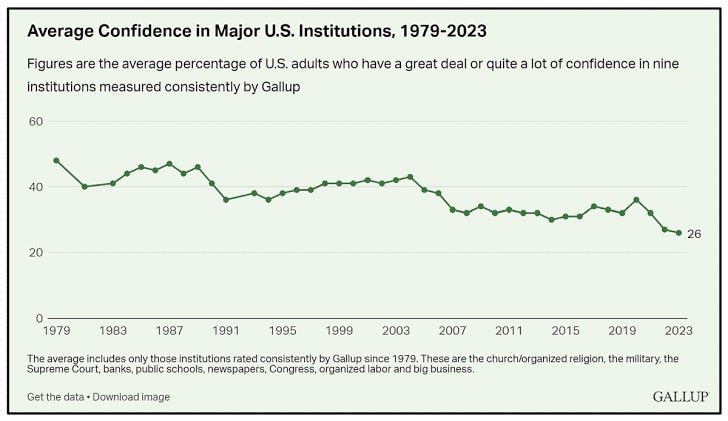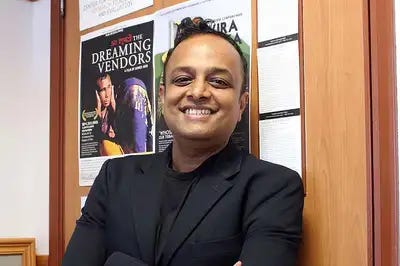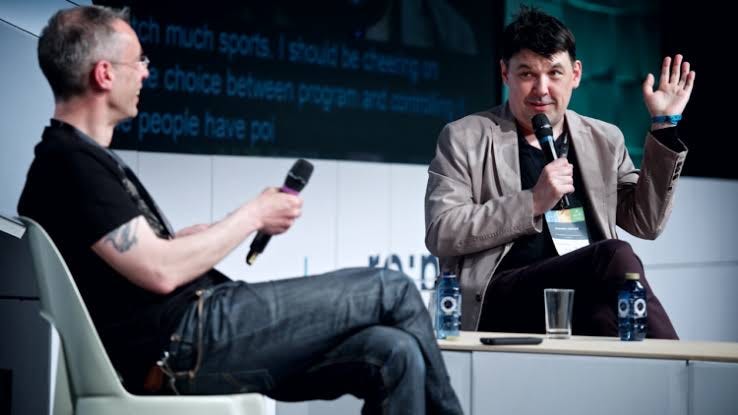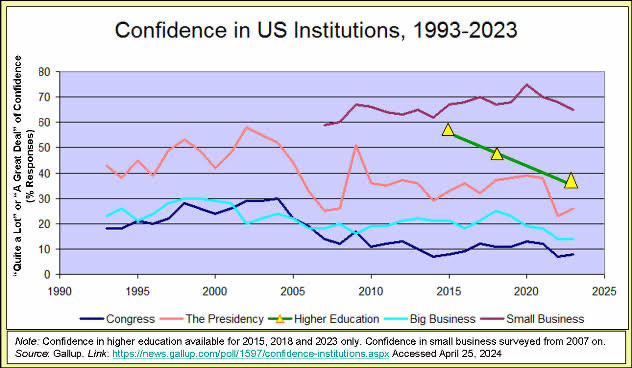The collective right have a problem.
The entire foundation for their world view is antiscientific.
Their preferred economic strategies have been disproven. Their whole neoliberal model faces accusations of corporate corruption and worsening inequality. Climate change not only definitely exists, its rapid progression demands an immediate and expensive response in order to secure our future. The unemployment rate is a recognised permanent fluctuating feature of the economy; it turns out poor people perform better if they’re healthy, supported, and paid well; privatisation leads to excess profits being pulled from taxpayers; slower speeds save lives; bicycles and busses are good for our cities; people have even clued into the fact that landlords don’t actually provide housing, they’re just the middleman for it. Undoing the harms of colonisation has been shown to be important for population wellbeing; the legal field is validating Māori claims to land and protected rights; the wider fields of criminal justice and history undermine punitive ideas like incarceration-only punishment and borstal-based boot camps; and our academics just keep disagreeing with literally everything the right stand for.
The writing is on the wall: all theory and evidence would suggest the neoliberal gravy train is coming to an end. The only question is when.
Ideally for the companies raking in the profits and the people they are paying big money to work for them, this will take as long as politically possible.
That’s why oil companies have spent seventy years covering up climate change with bung science and promoting unhelpful initiatives that have failed to wean us off our consumption of oil.
Now a new player of the disinformation game has entered the arena: sponsored heavily by corporate interests, the Free Speech Union are just the latest “grassroots” (ACT-associated) initiative dedicated to spewing statistics designed to undermine the validity of science and academia in New Zealand.
Professor Mohan Dutta of Massey University explains:
The trope of academic freedom in danger is a critical resource in the organised attack of the far-right on the modern university. One of the core techniques of the far-right in its efforts to destabilise academic institutions is to cook up a frenzy around free speech - intentionally conflating free speech issues with academic freedom. As an exemplar of the communicative inversions performed by the far-right, the panic around academic freedom is actually a critical tool in catalysing attacks on the academic freedom of decolonising practices in the university environment. What the far-right, and the underlying infrastructure of white supremacy is triggered by, is that universities are slowly transforming, starting to acknowledge that centuries of colonial epistemic violence have erased the knowledge infrastructures of colonised peoples.
In Aotearoa New Zealand, as I have demonstrated in my analyses, the Free Speech Union uses ideologically motivated faulty surveys to create panic around academic freedom. With a fundamentally incorrect understanding of academic freedom (the freedom of academics to teach and publish in their areas of expertise) that conflates it with free speech, the Union constructs its propaganda around specific ideological issues (Te Tiriti o Waitangi, gender justice, and so on) which are at the heart of the far-right's culture war propaganda in Aotearoa.
In its most recent campaign, the Free Speech Union has turned to releasing leaked climate surveys to construct the argument that academic freedom is under threat in Aotearoa. Deploying the tactical tool of leaks, it builds an affective register around academic climates, suggesting these environments are threatening academic freedom.
In August, the Free Speech Union targeted the Law School at Auckland University of Technology (AUT), placing its propaganda around a leaked climate survey (to David Farrar, yes, the same David Farrar that runs the debunked Free Speech Union survey on academic freedom) that suggested faculty dissatisfaction. Commenting on the selective excerpts from the survey published on David Farrar's blog, noted Jonathan Ayling, the Chief Executive of the Union:
“Academics are being criticised and punished for speaking out, causing them and others to resort to self-censorship. Again, results from an internal law school survey displayed very low levels of satisfaction. This included 30% claiming they feel uncomfortable reporting inappropriate behaviour and more than one-in-three respondents experiencing bullying in the past six months."
Mr Ayling's blog then reports on a letter sent out to the Minister of Education and the AUT Vice-Chancellor. When you look closely at the items shared on Mr Farrar's blog however, there is not a single reported item on the blog that substantiates the claim "academics are being criticised and punished for speaking out." You also won't find an item that actually measures self-censorship.
In other words, the frame around threat to academic freedom that is part of the moral panic crafted by the Free Speech Union in its press release and the letter to the Minister of Education is not substantiated empirically. There is no evidence of academics being punished for speaking out, as Mr Ayling claims.
Mr Farrar's blog embellishes the ideological reading of the survey with leaked emails and speculations. The survey creates the opening for attacking the Dean of Law at AUT who had spoken out against the attack on the teaching of Tikanga Māori. Writes Mr Farrar: "Now readers will recall that the Dean of Law is Khylee Quince and she attracted a lot of publicity when she called a senior KC a racist dinosaur who should go off and die in the corner." The blog wraps up by further constructing the Dean as threat to academic freedom:
"As you can see the results for the Law Faculty are much much lower than AUT as a whole. So this would suggest the major issue is not the central administration, but the faculty management itself. I am told by sources that everyone knows what the major problem is, but people are too scared to say so."
Note here the slippage from the report of a leaked climate survey to hearsay - the architecture of gossip in: "everyone knows what the major problem is, but people are too scared to say so."
It is worth noting the targeting of the AUT Dean of Law, Māori academic Khylee Quince, is part of a broader campaign targeting senior Māori academics (often women) who have spoken out publicly against the white supremacist structures that make up universities in settler colonial Aotearoa New Zealand, and their organised campaigns directed at erasing the decolonising registers that have been built through decades of struggle. The ideologically motivated campaign around academic freedom mobilised by Mr Farrar and Free Speech Union works on slippages to construct the narrative of academic freedom under threat. Implicit in this, is the positioning of Te Tiriti o Waitangi as a threat to academic freedom in Aotearoa.
Indeed, the academic climate of settler colonial universities, embedded in whiteness and mobilised to uphold white supremacy, has worked historically to erase decolonising registers of knowledge generation. Prevailing norms of whiteness have devalued and undermined Indigenous knowledge claims, often working aggressively to silence decolonising scholarship. The voices of Indigenous and postcolonial academics have historically been silenced, with the academic freedom to do decolonising scholarship severely constrained by the norms of whiteness, upheld by notions of civility and norms of communication within white academic structures.
As universities in Aotearoa New Zealand, as with universities across settler colonial spaces globally, have started their decolonising journeys around reconciliation and recognition of Indigenous rights, the far-right white supremacist campaign seeking to silence these efforts has worked incessantly to construct decolonisation as a threat to academic freedom. The implicit and explicit targeting of Te Tiriti o Waitangi and the positioning of Te Tiriti in opposition to academic freedom must be read within the broader architecture of the global proliferation of white supremacist backlash against decolonisation. Any conversation on academic freedom must begin with the recognition that the far-right panic around academic freedom is a threat to the academic freedom of academics studying, teaching, researching and publicly engaging on decolonisation, postcolonial theory, critical race theory etc. It must also be noted that academics teaching and researching in these areas have historically faced diverse intersecting forms of marginalisation, harassment, and threats to their academic freedom.
There are many examples of what Dutta talks about. Take this RNZ article from May, titled “University Campuses Increasingly Polarised - Experts”.
The single ‘expert’ interviewed here is Dr Michael Johnston, of the ATLAS-associated New Zealand Initiative and the subject of the supposed polarisation that resulted in his economic panel being postponed and rebalanced, in order to provide diversity of thought and more opinions than just the right.
Oh, and David Seymour weighs in too, of course.
This was how the debate was eventually run:
Both discussions would be facilitated by RNZ Morning Report presenter Corin Dann.
Smith said it was important to discuss uncomfortable views. "We will bring a full discussion with a whole diversity of views.
"It will be done with the kind of scrutiny that universities have done for many years and I think - in that environment - it's going to be important that we are prepared to listen to things that we may find uncomfortable rather than decide - a priori - that certain groups need to be protected or held back from things that they might hear which I think is a rather patronising position," Smith said.
Despite the debate continuing with a more robust range of views, as the Free Speech Union and think-tank employees like Johnston apparently advocate for, this was not enough for him, as he would have preferred to sit on a panel where his thoughts could remain unchallenged.
"The best way out of that is a free and open sharing and contesting of ideas, that's what the university is supposed to be a venue for, and we shouldn't want to curtail that in any way."
(Johnston does not explain why the university's solution was not a “free and open” contesting of ideas.)
The problem with the right is that they want to speak, but they also interpret or present the many “challenges” of their ideas as them being “silenced”, when in reality it is a part of the free-flowing debate they say they desire so ardently.
This attack on academia via the idea that freedom of speech in universities is under threat is an international phenomenon. Graham Linehan (UK) was paid by the Free Speech Union to disseminate this rhetoric around the motu as part of his New Zealand tour earlier this year.
The freedom of speech debate has been particularly visceral in the UK because of the disproportionate presence of trans-exclusionary radical feminists (TERFS) in the upper echelons of British academia, especially in the fields of gender studies and in psychology. Anti-academic rhetoric has been carefully stoked by these radical feminists around concepts of sex and our scientific understandings of it, and they felt that their opinions were being silenced by the mainstream fields of feminism, biology, medicine, etc, when in reality it was more a mainstream rejection of what they presented as “academics” and “science”. This resulted in them trying to discredit their discrediters in turn, the outcome of which has been deep societal division between people who support trans rights and those seeking to suppress them.
(See my piece on the Cass Report for how this affects New Zealand)
Meanwhile in the US, campus discourse has spun off in its own direction from the student side of the equation, resulting in the founding of FIRE, the Foundation for Individual Rights in Education, in order to oppose potential breeches of freedom of speech in universities. This has included fighting against diversity, equity and inclusion programmes (largely by promoting affirmative action as discriminatory, leading to the Republican Supreme Court ban of affirmative action policies in education).
In June 2022, FIRE announced a rebrand and expansion, becoming the Foundation for Individual Rights and Expression, widening their focus from college campuses to all of American society.
FIRE has led to increased polarisation in the US, especially on college campuses. The right — and the confused public — have frequently interpreted FIRE’s opposition to the stances of the American Civil Liberties Union as evidence that the ACLU is partisan and therefore not a genuine defender of rights and freedoms.
In reality, the ACLU is a civil rights organisation with a focus on preserving ALL rights, and that occasionally means they will be advocating against various forms of free speech. This has seen them take opposite sides to FIRE in legal cases in the past.
In theory, the existence of a dedicated Free Speech organisation like FIRE and FSU to address these “conflicts of interest” with mainstream civil rights should ensure equity between democratic ideals, providing a more thorough defence of civil liberties by giving “speech” its own champion. In reality, speech has ended up with an overenthusiastic defence team and this has been used to attack the ACLU and undermine civil rights as a whole, with FIRE being presented as the “non-partisan” version of the “woke and corrupt” leftist ACLU.
(New Zealand does not really have an equivalent of the ACLU. We do have the FSU though!)
It is true that the ACLU generally defends civil liberties from the perspective of a “left-wing” civil rights organisation; this is because until the right very recently decided they cared a lot about free speech in the specific, civil rights generally has been the domain of the left, including the protection of free speech. The reality is that the work has been done by, and the funding for it has come from, the left much more than from centrists or the right.
Despite that, the ACLU do defend the rights of and act on behalf of right wing groups and people like Neo Nazis and the Klu Klux Klan. The presentation of the ACLU as fully partisan or “only a defender of the left” is entirely incorrect.
This has naturally not made those on the left more receptive to what has been a pretty partisan “free speech” organisation attempting to present itself as a neutral party while attacking one of America’s longest standing defenders of civil rights.
When I attended Graham Linehan’s FSU event, I was shocked at the manner in which the process of academic peer review was presented to the public.
Peer review confirms the quality and veracity of public research by vetting, reviewing, and discussing the works of academics. It has been a bugbear for the right and a barrier — a deliberate barrier — to their dissemination of disinformative and low-quality research. In fact frustration from right wing students reaching universities and finding their beliefs go against accepted academia, science, and best practice was a ferocious force fanning FIRE’s early flames in American universities.
They have been very successful.
This graph attempts to plot trust in higher education against trust in other US institutions.
Looking on the below graph at the wider US patterns, we can see obvious points in time where public trust is shaken overall, never to fully recover.

However, Gallup has only been recording university trust data specially since 2015, which really should say something about this whole situation (and that data is only taken every three years). By this point, trust in universities had long since begun to be undermined. But we can see that while trust is waning on both left and right, it’s the Republicans for whom trust is plummeting.
Republicans present this as evidence that universities have become more left-wing. I present it as evidence that populist right-wing positions have become more incompatible with academia and with science, not because academia is hostile to them, but because the evidence is not there to support them. But it has become quite easy to convince people you are correct even when all evidence and most experts, impartially assessed, would imply otherwise.
And so that’s what they have done.
As a result, organisations like FIRE and FSU have received large amounts of money to expand their programmes of “protecting free speech” — which actually are advertisements for how unreliable academia is, reducing public trust in the institutions we rely on to oppose corporatism.
This too was presented as bias by the FSU; academics presenting research that “needs further study” or that justifies further investment is, to the neoliberal right, a sure sign of corruption (and certainly not just a convenient excuse of theirs to cut funds from public institutions).
Theirs is a spin on rhetoric of the left that had finally started to become effective against them — the highlighting of their shadowing networks of money and influence originating from ATLAS and the Hyek Institute that implemented neoliberal politics globally and continues to bolster it to this day.
Organisations like FIRE and the Free Speech Union don’t just threaten other rights by opposing them to the benefit of freedom of speech, they pull support and funding from those fighting for these rights by presenting speech as uniquely under threat. In reality, in all the cases where speech is “under threat”, it has been as part of an extended and complicated discussion about the threat that speech is posing to other rights, and even to speech itself — a university where Nazi rhetoric is allowed to flourish, for example, is not a safe space for minorities to study, learn and contribute, and so this is a form of suppression of speech too. Universities and public institutions have always been aware of this and have always tried to balance these rights in a way that is fair and that facilitates discussion and democracy. But they equally have a responsibility to suppress hate speech, disinformation, and anti-democratic movements in order to protect that discussion and the integrity of democracy in general.
It is a carefully-balanced seesaw, one the FSU and other free speech groups have deliberately unbalanced, then blamed universities for how it now swings wildly from the recoil.
I’ll be leaving up 75% off subscriptions for the next week. Thanks for reading and supporting!









So great to read this. I think you’re hitting on some super important ground around the way the far right are positioning academia as partisan, when in fact the point of education and research is to broaden and deepen understanding, and that leads to greater ability to work with the complexity of the world (diversity being fundamental to that). The fact that right-leaning voices are finding their views at odds with the direction of academia is a natural outcome of the evolution of knowledge towards greater understanding of complexity and therefore greater ability to work with the ecological nature of our world. Exclusionary discourses, that work against interdependence, relationality, and diversity, are not compatible with an ecological view of the world (ie reality). What the far right call “partisanship” is actually “global collective intelligence”; and the far right want to constrain that back to something they can understand and master (in all senses of the word). It is so tiresome. They are literally trying to stop evolution. I love where you talk about the “neoliberal gravy train”! A brilliant use of their own weaponisation of that term (as someone who has been accused of being on the gravy train by the TPU because of conducting anti-racism and Te Tiriti education). I think sending their arrows back to them is a good idea. And really exposing the manipulative framing of terms that appear universal. Love your work!!!
I do think the FSU has a valuable role to play. I think politics is best assisted by a contest of ideas. It’s easy to get complacent when the things you know to be true are confirmed by others. Its why liberal democracy values the loyal opposition. When the loyal opposition is limping that is not good; it is not just a great opportunity to make hay while the sun shines.
Similarly that is why the FSU needs people like Sapphi to keep a beady and critical eye on them (I am a member) so that they don’t believe their own propaganda without challenge. Its easy to drink the kool-aid in an echo chamber.